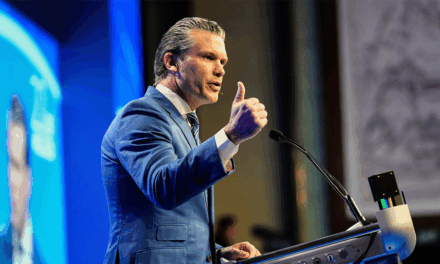In recent days, the political landscape has been ignited by calls from prominent Democrats and various media outlets urging New York Assemblyman Zohran Mamdani to publicly condemn his use of the phrase “globalize the intifada.” This phrase has garnered significant attention amid the ongoing Israel-Palestine conflict and discussions surrounding the global response to it.
The phrase “globalize the intifada,” which can be interpreted as a call for international solidarity with Palestinian resistance movements, has raised eyebrows within both political and media spheres. Critics argue that the statement is not only inflammatory but also undermines peace efforts in an already volatile region. Advocates for condemning this rhetoric assert that it risks inciting violence and promotes division rather than unity.
Mamdani, a progressive Democrat who represents a diverse district in Queens, has been a vocal advocate for Palestinian rights. His stance resonates particularly with the younger demographic that is increasingly vocal about social justice issues. His supporters argue that the phrase is rooted in the desire for liberation and equity for marginalized communities, hence it should not be viewed as a declaration of support for violence.
The controversy erupted during a period of heightened sensitivity regarding messaging around the Israel-Palestine conflict, especially following a series of violent confrontations in the region. With the death toll rising on both sides, the pressure on political leaders to clarify their positions is mounting.
As the calls for condemnation intensified, Mamdani faced a dilemma. On one hand, he has a robust base of support within his constituency that believes in amplifying the voices of those affected by oppression. On the other hand, he is also aware of the potential backlash from more centrist Democrats and constituents who may interpret his words as an endorsement of violence or extremism.
The demand for Mamdani’s condemnation reflects a broader trend within the Democratic Party, particularly among moderates, who are increasingly uncomfortable with the rising tide of pro-Palestinian rhetoric in political discourse. Some party insiders express concern that such language could alienate key voter demographics just as the party heads into crucial elections.
Media outlets have jumped into the fray, with opinion pieces and news segments focusing on Mamdani’s statements as a barometer for the overall sentiment within the party. Prominent anchors and journalists have utilized their platforms, highlighting how the language used by representatives, particularly regarding sensitive issues like the Israeli-Palestinian conflict, can shape public perception and party unity.
In a recent press conference, Mamdani was asked about the comments and their implications. He acknowledged the sensitivity of the issue but refrained from immediately responding to the demand for condemnation. Instead, he emphasized the importance of dialogue and understanding historical contexts that shape the current realities on the ground. His response was seen by some as a calculated move to maintain his support among his progressive base while also navigating the political pressures from more moderate factions.
The phrase “globalize the intifada” is not new; it has historical roots tied to the Palestinian uprisings, known as intifadas, which were characterized by mass protests and violent confrontations against Israeli occupation. However, in recent years, the phrase has been adopted in broader discussions about anti-colonialism and the struggles of marginalized communities around the world. This adoption complicates the narrative, as it connects the Palestinian struggle to other liberation movements globally, forging a sense of solidarity among disparate groups.
Critics of the phrase argue that it implies a glorification of violence, with echoes of past conflicts that have led to significant loss of life. They assert that such language strays too far into perilous territory, where the lines between advocacy and incitement blur. The fear is that movements encouraging radical expressions could derail legitimate calls for justice and equality, ultimately leading to heightened tensions both domestically and internationally.
Supporters of Mamdani’s viewpoint insist that the phrase is a vital part of the discourse surrounding liberation struggles. They argue that it encapsulates a call to action against what they view as systemic injustices not just in Palestine but in various contexts where marginalized communities face oppression. This perspective holds that condemning the language is tantamount to stifling necessary conversations about global injustices.
In the wider context of U.S. politics, this situation exemplifies the ongoing struggle within the Democratic Party between its progressive wing and more centrist elements. As issues around race, social justice, and foreign policy intertwine, party leaders are increasingly aware of the need to balance differing perspectives while maintaining a united front, especially as they head into a critical election cycle. The party’s ability to navigate these complex dialogues will be instrumental in shaping not only its platform but also its electoral fortunes.
The calls for Mamdani to denounce the phrase raise larger questions about free speech, political correctness, and the implications of rhetoric in an age of heightened polarization. As much of the political discourse shifts to social media platforms, where phrases can easily be taken out of context, the challenge for politicians lies in how they communicate their positions without alienating constituents or inadvertently endorsing extreme views.
Ultimately, as the debate continues, Mamdani finds himself at a crossroads, embodying the challenges many in leadership face—how to advocate for justice while recognizing the complex realities they navigate. The response he ultimately crafts may set a precedent not only for his future political career but also for how Democratic leaders engage on contentious issues, striking a delicate balance between advocating for change and maintaining party unity.
As this debate unfolds, observers will be watching closely not just to see how Mamdani responds but also to gauge the broader implications for the Democratic Party’s approach to foreign policy and social justice in a time of significant political upheaval.
































